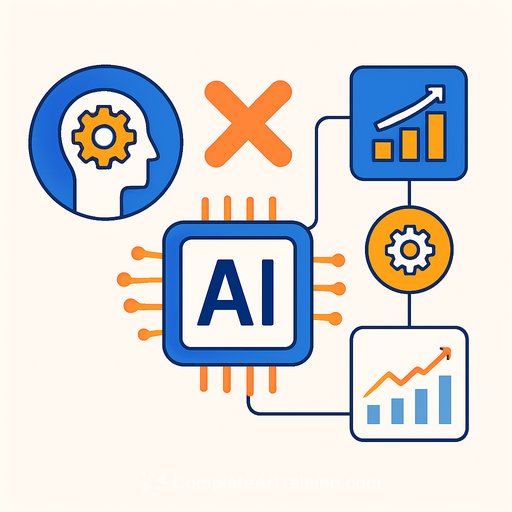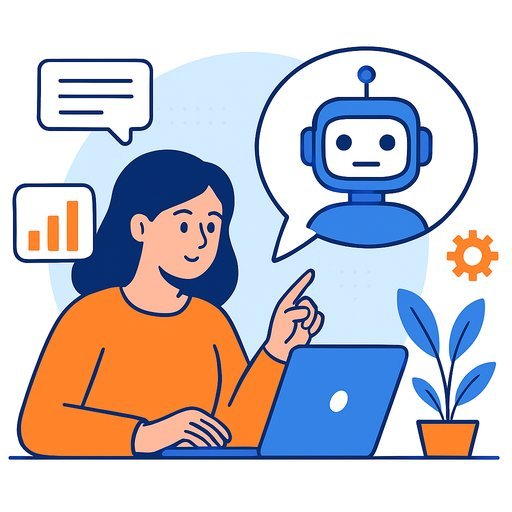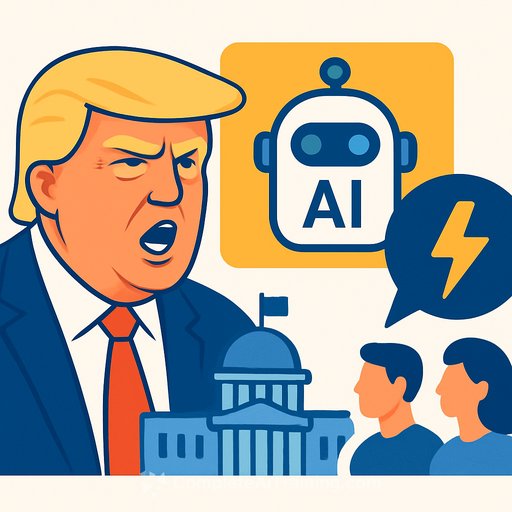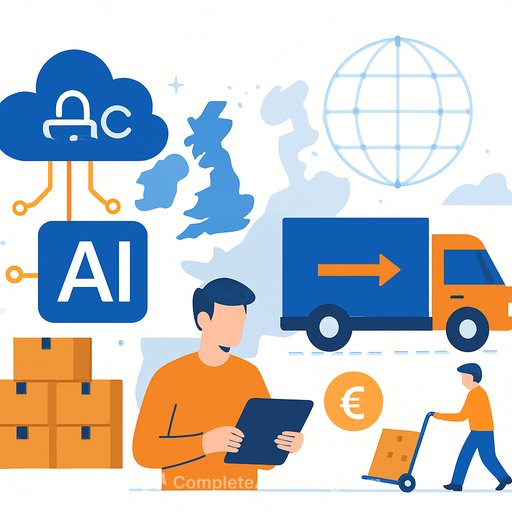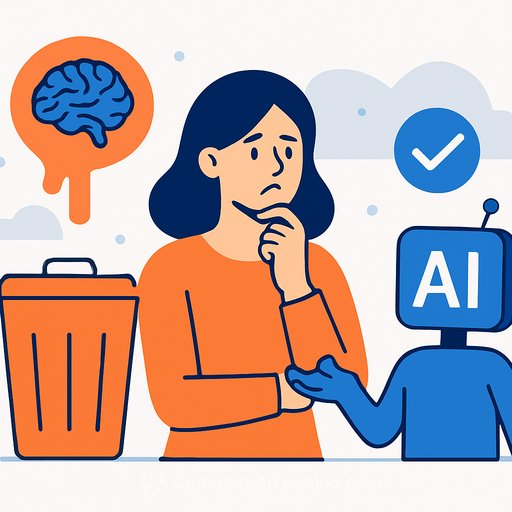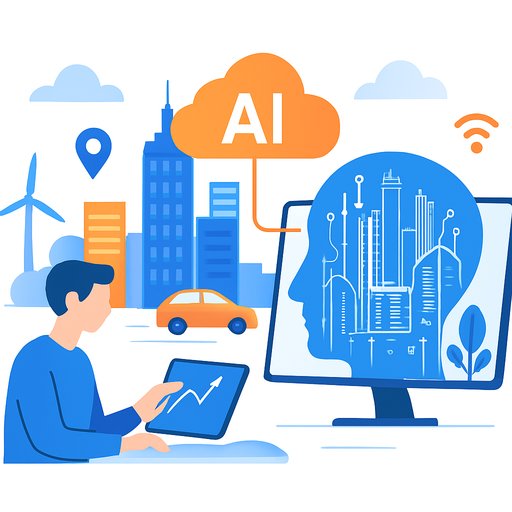How Ambitious Entrepreneurs Can Use AI to Scale Their Startups
Ambitious entrepreneurs are increasingly adopting AI to fuel growth, innovate, and improve efficiency. Small teams are proving they can compete with major players by applying AI strategically, showing that size is no longer a barrier to impact. Particularly, startups aiming to hire 20 or more employees focus heavily on integrating AI into their business models.
Take the example of Anysphere, which launched Cursor in 2022—an AI coding assistant. Despite being a lean team without massive funding, they quickly became a competitor to industry giants like OpenAI and GitHub. Their success highlights how AI enables startups to accelerate decision-making, unlock new markets, and optimize operations from the ground up.
The Role of Ambitious Entrepreneurs
Small businesses make up 99% of all U.S. firms and nearly half of private sector employment. While most small businesses grow steadily, a smaller group—ambitious entrepreneurs—drives significant change. According to recent data, only 18% of U.S. entrepreneurs expect to hire 20 or more employees in the next five years. These entrepreneurs are much more likely to introduce new products or services and act as key drivers of innovation and job creation.
Ambitious entrepreneurs aim to disrupt markets and scale rapidly, and they see AI as essential to achieving those goals. Their efforts contribute disproportionately to economic growth and renewal.
AI Adoption Among Entrepreneurial Ventures
While large enterprises widely acknowledge AI’s impact—78% of executives plan to increase AI investments—small and medium businesses are also adopting AI, though at varying rates. Only about 21% of small businesses currently use or plan to use AI within two years. However, among ambitious entrepreneurs, 87% believe AI will be critical to their business models in the next three years.
They expect AI to positively affect revenue and growth, citing benefits such as:
- Innovative product and service development
- Improved productivity and efficiency
- Enhanced customer personalization
- Better risk and compliance management
Startups often have the advantage of agility and can build AI-driven processes from day one. But limited budgets and technical expertise remain challenges. Many founders worry about costs, implementation difficulties, employee resistance, and data privacy. Even among tech-focused startups, only a minority have the skills needed for deep AI integration.
AI is already helping entrepreneurs automate repetitive tasks and improve decision-making speed and accuracy. Generative AI tools reduce the time needed to test marketing strategies, create content, or code. AI also transforms industries traditionally outside tech. For example, companies like Stuccco and ImagineInteriors.ai use AI for virtual staging and product visualization, allowing small firms to compete with high-end agencies by producing photorealistic renderings fast and affordably.
Agentic AI tools, which perform digital tasks independently, are expanding possibilities further. Entrepreneurs can automate website creation, transaction processing, customer support, and market research with AI agents, increasing capacity while maintaining human oversight.
Practical Framework for AI Adoption
For startups with high growth ambitions, adopting AI requires a clear, adaptable strategy. This framework can assist entrepreneurs, investors, and advisors. Different ventures will apply AI adoption differently depending on resources and goals, but a common principle applies: AI adoption should not be purely top-down.
Set the Direction and Pace
Entrepreneurs should decide not just whether to adopt AI, but how quickly and in what areas. Incremental adoption through experimentation works best, starting with minimum viable AI use cases. Automating simple, repetitive tasks can build momentum and internal support.
Some startups focus on AI to drive revenue growth by launching new products faster or reaching more customers. Others begin with cost-saving tools integrated into existing workflows. Early on, partnering with AI tool providers tailored to specific industries is a practical approach. For example, Netic offers AI solutions for HVAC, plumbing, and electrical businesses to automate scheduling and marketing, boosting efficiency without increasing headcount.
Using external AI tools helps startups validate AI benefits with low risk, freeing up time to focus on scaling. This approach lays groundwork for more advanced, in-house AI applications later.
Balance AI with Human Skills
AI excels at data processing, pattern recognition, and automating routine tasks, but human skills remain essential. Critical thinking, empathy, judgment, and adaptability are areas where humans outperform machines.
Effective AI adoption blends technology with human insight. For instance, Style DNA combines AI-driven fashion recommendations with user control, allowing customers to make final outfit choices. This hybrid model enhances personalization and supports sustainable fashion by encouraging wardrobe reuse.
AI can free employees from repetitive work, enabling them to focus on creativity and customer engagement. This shift not only improves job satisfaction but also strengthens the startup’s value proposition. Entrepreneurs should position AI as a tool to amplify human potential, not replace it.
Encourage Employee-Led AI Initiatives
Startups usually lack dedicated AI teams but can empower tech-savvy employees to experiment with AI tools. These “citizen developers” understand company processes and culture, making them ideal champions for AI adoption.
Modern AI tools can generate code, create websites, presentations, business plans, and marketing materials with minimal cost or training. This accessibility acts as a force multiplier in entrepreneurial environments.
Introducing AI from the bottom up builds trust and reduces employee fear. Peer-led adoption encourages wider acceptance and creates internal experts who can guide best practices. Entrepreneurs should support these efforts with training, recognition, and incentives.
Conclusion
AI is no longer reserved for tech giants. Affordable, accessible tools put startups in a strong position to grow faster and operate smarter. But realizing AI’s potential requires more than just trying new tools—it calls for a strategic mindset that integrates AI throughout the business.
The next wave of business growth will come from entrepreneurs who combine ambition with thoughtful AI use to outpace competitors. For those ready to learn more about AI and how to apply it, exploring structured AI courses can be a valuable step.
Your membership also unlocks:



